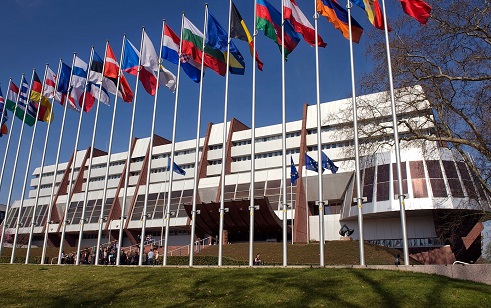European Union concerned by Russia-Abkhazia treaty

The European Union (EU) believes the proposed 'Alliance and Integration' draft treaty between Russia and Georgia's breakaway region, the self-proclaimed Republic of Abkhazia, undermines the security and stability of the region.
The EU’s statement was part of the Secretary General's 10thconsolidated report on the 2008 conflict in Georgia.
"Such steps violate Georgia’s territorial integrity and sovereignty and would contradict principles of international law and Russia’s commitments within the Council of Europe,” read the report of EU Secretary General Thorbjørn Jagland.
His findings were welcomed by the Council of Europe's member states but representatives of the Russian Federation questioned the effectiveness of the reports.
The Kremlin-proposed 'Alliance and Integration' agreement outlined joint cooperation between Russia and de-facto Abkhazia in defence and security, economic harmonisation with the Eurasian union, as well as mutual social protection and foreign policy issues.
The so-called treaty has been strongly condemned in Georgia by Government officials as a step towards the annexation of Abkhazia.
Meanwhile, Georgian officials called on the Council of Europe's member states to take a proactive stance to prevent further illegal acts by the Russian Federation directed against Georgia's territorial integrity and its sovereignty.
The report, which covered the period between April and September 2014, also urged the Russian Federation to fulfill its international commitments and obligations, including the six-point ceasefire agreement of August 12, 2008, and to grant the EU Monitoring Mission (EUMM) access to Georgia's occupied regions.
The report also stressed to commit itself to non-use of force and to play a constructive role in the Geneva International Discussions.
A statement on behalf of the EU was also made during the 1211th meeting held on November 12 at the Committee of Ministers Deputies of the Council in which EU member states reiterated their unequivocal support for the independence, sovereignty and territorial integrity of Georgia within its internationally recognised borders, Georgia’s Foreign Ministry’s press office said.
On another note, the report noted the EU was concerned about the human rights situation in Georgia's Abkhazia and Tskhinvali (South Ossetia) regions and the process of ‘borderization’ along the occupation line.
It also underlined the importance of the right of refugees and internally displaced persons to a safe and dignified return to their homelands.
The former Yugoslav Republic of Macedonia, Montenegro, Iceland, Turkey, Albania, Bosnia and Herzegovina, Liechtenstein, Norway, Republic of Moldova, San Marino and Ukraine aligned themselves with this statement.
Despite the report gaining criticism from the Russian Federation, a group of post-Soviet countries welcomed the findings.
A statement on behalf of GUAM member states – Georgia, Ukraine, Azerbaijan and Moldova – was also made, in which the countries expressed their support for the practice of the Council of Europe Secretary General presenting future reports on the conflict in Georgia as well as for Georgia's sovereignty and territorial integrity within its internationally recognised borders.
Georgia’s Foreign Ministry welcomed the publication of the Council of Europe Secretary General's 10th consolidated report, as well as the statements made by the EU, GUAM and other partners concerning the report.
The Ministry believed the ongoing issues related to the 2008 conflict in Georgia would remain high on the Council of Europe's political agenda.
The Council of Europe is continuing to monitor the commitments undertaken by the Russian Federation and Georgia following the 2008 war. It is also responsible to regularly inform the international community of ongoing developments in Georgia's occupied regions.
 Tweet
Tweet  Share
Share